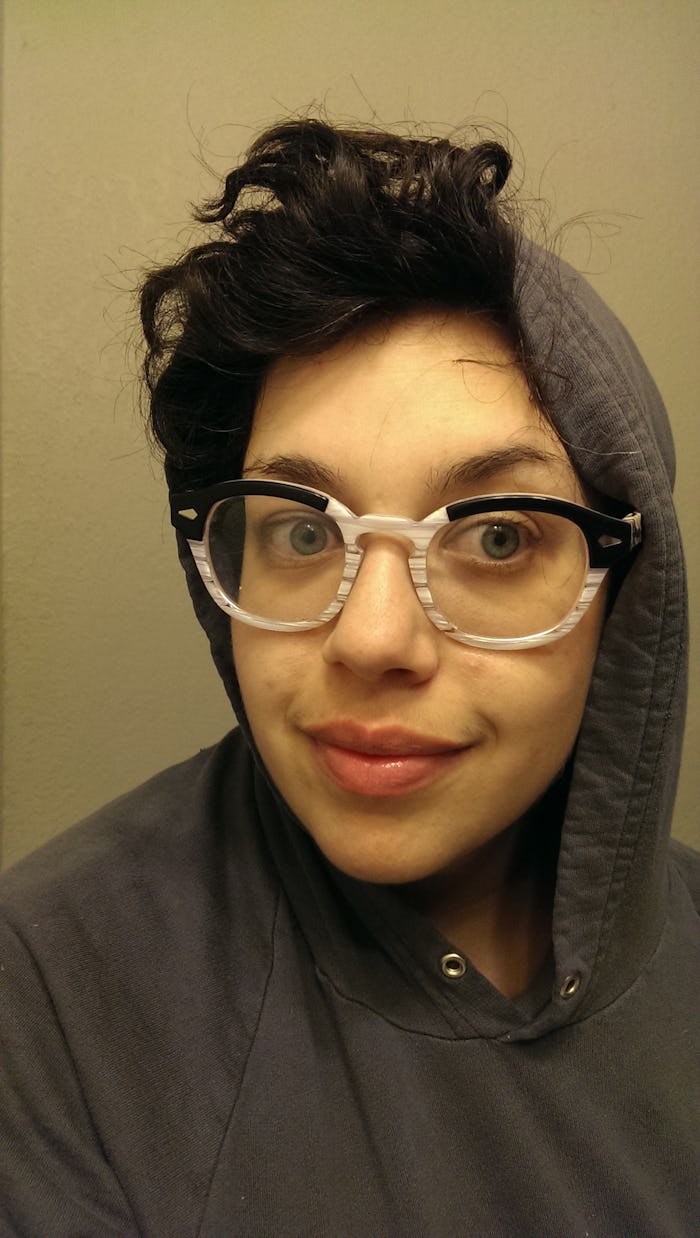On paper, I probably look like I have it all together. I have a steady job that pays well enough for me to stay afloat. I even like that job. I am polyamorous, and I have a healthy relationship with both of my partners. I am an engaged and loving parent to a wonderful child. I have even carved out time to pursue my own interests, like writing. I recently bought a house.
Intellectually, I know that I am a pretty accomplished person. But because I struggle with depression, my day-to-day feels more like survival. I have high-functioning depression, and honestly, every day is a struggle.
I suffer from recurrent depression, which means that I am prone to cyclical and intermittent bouts of major depressive episodes. They strike unpredictably and last between three weeks and several months. I've dealt with this long enough to know how it feels when a depressive episode is coming. I know when to tell my partners an episode is looming and that I will need help. I also know how to remind myself, when the fog descends, that it is just temporary; that, in time, I will reconnect with the joy and spice of life again, if I am simply patient enough.
Depression manifests itself differently for everyone. I tend to experience anhedonia, which is a fancy way of saying everything gets flat and gray. Anhedonia literally means the inability to experience pleasure. It's like there is a fog between me and the emotional content of my life. If something good happens— for instance, like I finally get my Ph.D. — I just feel…nothing. Not happiness, not relief. Just a nagging feeling of emptiness.
The cycles of depression are damning. There is hope in the knowledge that the episodes always end, but there is despair in the certainty that another one lurks somewhere down the road.
For me, the anhedonia is almost always paired with a general sense of listlessness. I sleep more and eat less. I go to work, buy groceries, and sleep. The anhedonia and fatigue combined make me feel deeply apathetic. Life loses color, and each day is just a repeat of the last one — or at least, it feels that way. When I am depressed, I can’t emotionally connect to the joy of my own life. I know intellectually it’s still there, just out of reach, but I can't quite see it for myself. It’s maddening.
Still, I keep doing things. I pay bills. I snuggle with my kiddo. I show up to parent-teacher conferences. I answer work emails. I do all of these things through sheer force of will. As it turns out, I have a staggering amount of willpower. But the cycles of depression are damning. There is hope in the knowledge that the episodes always end, but there is despair in the certainty that another one lurks somewhere down the road.
Having high-functioning depression means that I have to know the exact terrain of my depression. I have to lean into it and feel it out instead of hiding from it. It means admitting to myself that I am depressed, and mapping out what that means for me day to day.
Sometimes that looks like thinking through how long I can feasibly go without showering in the week. Sometimes that looks like explaining to my kid that I don’t have the energy to play, then going straight to bed after work. Sometimes it means calling in sick to work, because putting on real people clothes and making it out the door seems impossible, and I know myself well enough to bank some sick time for depression reasons.
It took me far, far too long to realize that I suffered from depression, precisely because I was highly functional.
Being high-functioning is both a blessing and a curse. On the one hand, it means you’re functional. There is tangible evidence you’re surviving. Yes, I might be depressed, but the bills are still being paid on time. But on the other hand, it’s a near-impenetrable shield. It took me far, far too long to realize that I suffered from depression, precisely because I was highly functional, even though I was distant and listless and not eating and sleeping 14 hours. My mental health was in tatters, but because everything else in my life seemed OK, I didn't seek the support and help I needed.
As a parent with mental health issues, I think a lot about how the way I handle my depression sends messages about mental health to my kid. Since there is a strong genetic component to depression, there is a good chance that he will have to deal with depression in his life as well. How I handle my depression is certain to have an impact on him, whether it influences his own future struggles with mental health or how he interacts with people with depression in the future.
With that in mind, I am deeply torn on whether it’s a good or bad thing that I’m a high-functioning person with depression. Certainly it’s useful for my family. But I don't know that it's useful for me. What if I was just…functional instead of highly functional? What is the line between allowing myself to be vulnerable and pulling back from my duties as a partner and a parent too far?
There aren’t any easy answers. There probably isn’t actually an answer at all. This has become an ongoing conversation I have with myself whenever my depression ramps up, and unfortunately, because there is no cure for depression, it'll likely be a conversation I continue to have throughout my life. But for the sake of my own well-being and the sake of my family, I know it's a conversation worth having.
If you struggle with depression, please seek professional help or call 1-800-662-HELP (4357).
